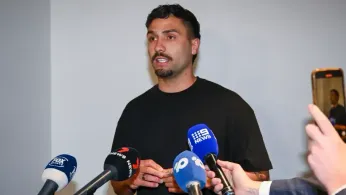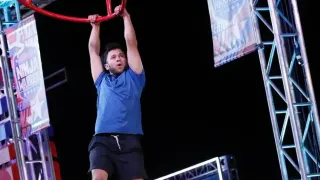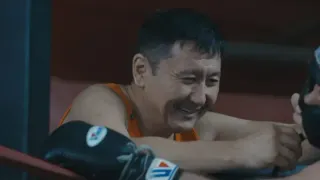
2 hours ago
AFL’s Izak Rankine Issues Tearful Apology After Ban for Homophobic Slur
READ TIME: 3 MIN.
Adelaide Crows footballer Izak Rankine has issued a “deeply sorry” public apology after being suspended for using a homophobic slur during an Australian Football League (AFL) match, a moment that has put the spotlight back on the league’s ongoing battle with on-field discrimination and LGBTQ+ inclusion .
Rankine, aged 25, was handed a four-match suspension after directing an offensive remark at a Collingwood player during a heated game at Adelaide Oval on August 16. The incident drew swift condemnation from both the AFL and the wider community, prompting Rankine’s club to send him overseas to avoid the immediate public scrutiny .
Upon returning to Adelaide on Tuesday night, Rankine addressed the media at the airport, expressing deep remorse for his actions. “I want to start by saying how deeply sorry I am for what I said. There was no excuse, it was wrong and I take full responsibility,” Rankine said, visibly emotional. “I’m disappointed in myself and I know I have let a lot of people down. I want to apologise to anyone who I have hurt and offended. I understand that word was offensive, harmful, it’s hurtful and has no place in our game or our society” .
Rankine emphasized that he was “in no way a victim,” acknowledging the pain his words caused and the need for self-reflection: “By going away, it’s given me the space to reflect and educate myself to understand the weight of my mistake” .
The Crows’ leadership arranged for Rankine to spend time overseas for his welfare before his return to Australia, a decision explained by the club’s CEO as supporting Rankine during a period of intense scrutiny. Upon arrival, Rankine met with teammates—including members of the club’s AFLW side—to deliver personal apologies, signaling a commitment to rebuilding trust within the organization .
The AFL has reiterated its zero-tolerance policy for homophobic language and conduct, with Rankine becoming the sixth AFL-listed player to be suspended for on-field homophobic comments in the past 16 months . Other recent cases include West Coast’s Jack Graham and Port Adelaide’s Jeremy Finlayson, underscoring the ongoing nature of the issue. The league has faced mounting calls for deeper cultural change and more robust education initiatives to prevent further incidents .
While immediate reactions from major LGBTQ+ advocacy groups such as the Rainbow Crows are still forthcoming, past incidents have spurred wide-ranging discussion about athlete behavior and the responsibilities of sporting leagues to foster safe, inclusive environments for all participants and fans .
LGBTQ+ community leaders have consistently emphasized that apologies, while necessary, must be matched by concrete action. “It’s crucial that the AFL and its clubs use these moments not simply to punish, but to educate and reform,” said a spokesperson for an Australian equality organization in a prior statement regarding similar incidents .
Advocates are calling for increased investment in anti-homophobia education, diversity training, and visible support for LGBTQ+ athletes and supporters. They note that while suspensions send an important message, true progress will come from a culture that actively celebrates diversity and inclusion at every level of the sport .
Rankine has now served one match of his four-game ban, with the possibility of returning should Adelaide reach the Grand Final. The timing of the suspension has complicated the Crows’ finals campaign, as Rankine is one of their key players . The incident has also prompted discussions within the team regarding values, respect, and the importance of creating a welcoming environment for LGBTQ+ players and fans alike .
The AFL is not alone in grappling with the legacy of homophobia in sport. Internationally, numerous leagues and organizations are being challenged to address language, behavior, and systemic barriers faced by LGBTQ+ athletes. Progress has been made in some areas, including the introduction of Pride Rounds and dedicated outreach programs, but incidents like Rankine’s underscore that ongoing vigilance and proactive leadership remain essential .
Advocates highlight that genuine inclusion requires both institutional policies and everyday acts of support from players, coaches, officials, and fans. For many in the LGBTQ+ community, visible apologies—while important—must be accompanied by sustained efforts to ensure that everyone feels safe and respected in the sporting world.






